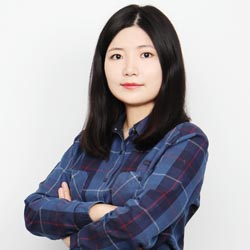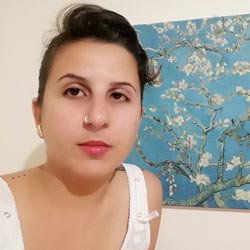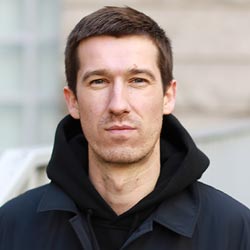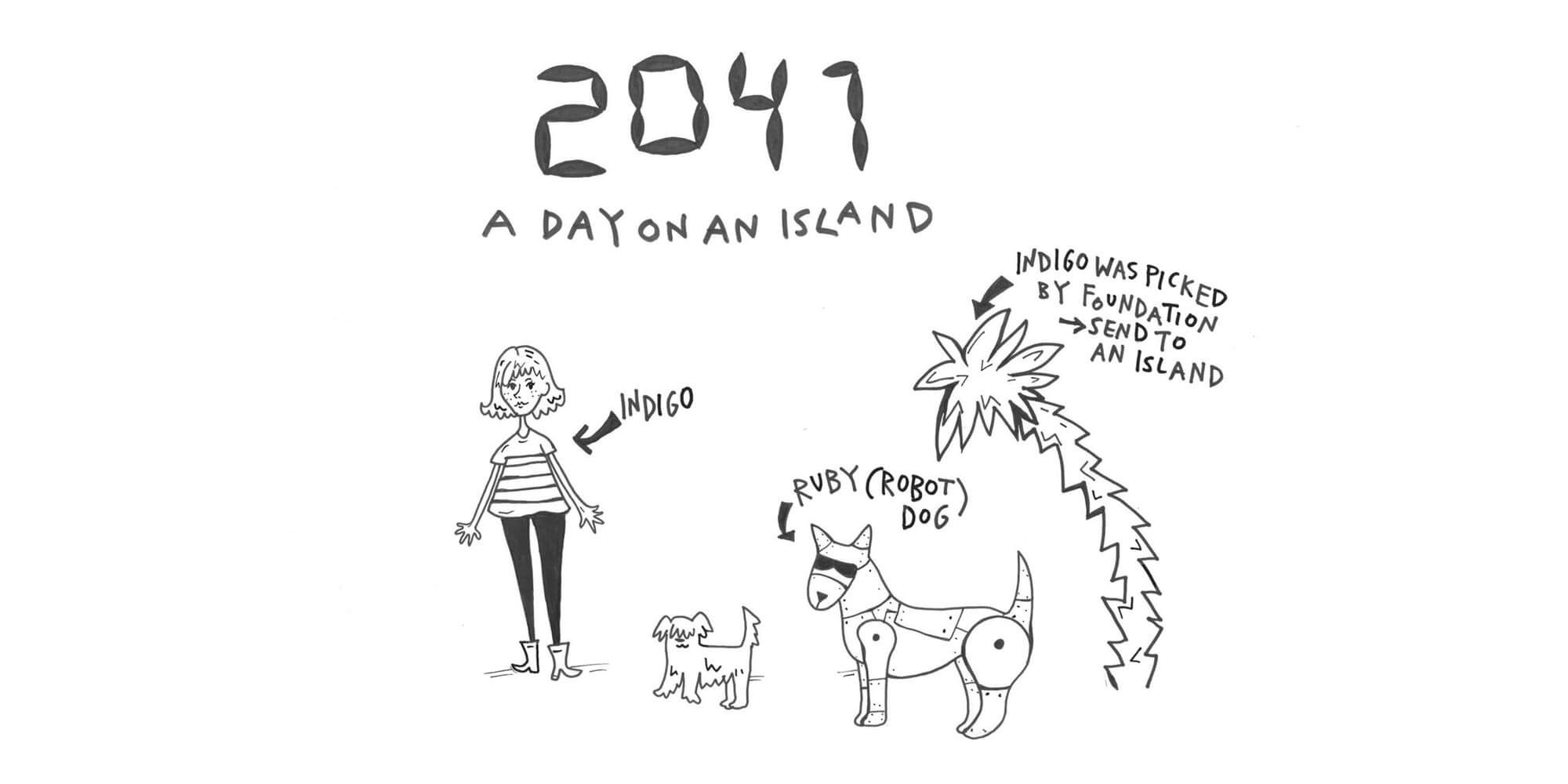2041 – A Day on an Island
This is the second edition of the event in which four experts from diverse backgrounds are invited to discuss the future of humanity, from global-scale issues to more subtle daily joy. This discussion is integrated into a short film that shows an imaginary day in 2041. This year, after a year in which the world experienced a pandemic, how will innovators view the future of Humanity?
Speakers:
 Kyungjin Jeong (KR): Designer, artist and researcher with an interest in the social concerns people face in daily life. She believes that artists, designers and researchers can reveal such concerns to the public through their work and offer feasible solutions to them. She is keen on how emerging technologies, such as AI and VR, will have an influence on human society in the future.
Kyungjin Jeong (KR): Designer, artist and researcher with an interest in the social concerns people face in daily life. She believes that artists, designers and researchers can reveal such concerns to the public through their work and offer feasible solutions to them. She is keen on how emerging technologies, such as AI and VR, will have an influence on human society in the future.KyungJin earned a master’s degree with a distinction in information experience design from the Royal College of Art.
 Ali Nikrang (AT): Key Researcher & Artist at the Ars Electronica Futurelab. He has his background in both Technology and Art. He studied Computer Science at the Johannes Kepler University in Linz and composition with focus on new media at the university Mozarteum in Salzburg. Besides, he obtained a diploma in piano performance at the same university.
Ali Nikrang (AT): Key Researcher & Artist at the Ars Electronica Futurelab. He has his background in both Technology and Art. He studied Computer Science at the Johannes Kepler University in Linz and composition with focus on new media at the university Mozarteum in Salzburg. Besides, he obtained a diploma in piano performance at the same university.Before he joined the Ars Electronica Futurelab in 2011, he worked as a researcher at the Austrian Research Institute for Artificial Intelligence in Vienna.
His research involves the interaction between human and AI systems for creative tasks with focus on music. It includes the investigation of creative outcomes of AI systems and how it can be leaded, enhanced and personalized through interaction with human user. As a classical musician and AI researcher, he has been involved in numerous projects combining artificial intelligence and music. He is the creator of the research tool Ricercar, an AI-based collaborative music composition system that can be used to compose classical music. In addition, his work has been featured in various conferences and exhibitions around the world (and has also been part of several TV and radio documentaries on artificial intelligence and creativity). In 2020, he has received the Young Researcher Award of Upperaustria (RTF).
 Farah Salka (LB): Lebanese-Syrian feminist, anti-racist organizer and human rights education advisor based in Beirut. She graduated from the American University of Beirut in 2006 with a BA in Public Administration and Political Science and then received her Masters in Human Rights Law from the University of Malta in 2007.
Farah Salka (LB): Lebanese-Syrian feminist, anti-racist organizer and human rights education advisor based in Beirut. She graduated from the American University of Beirut in 2006 with a BA in Public Administration and Political Science and then received her Masters in Human Rights Law from the University of Malta in 2007.Farah is the Executive Director of the Anti-Racism Movement in Lebanon which runs the Migrant Community Centers since 2010. She works on organizing with migrant communities, asylum seekers and migrant domestic workers under kafala, around issues of racism, xenophobia, the sponsorship system, migrant justice and labor justice. She is on the Global Advisory panel of the Equality Fund, the Advisory Board of the A-Project in Lebanon and the Doria feminist fund in the MENA, and board member and co-chair of Amsterdam-based Mamacash, the oldest international fund supporting women’s, girls’, trans groups and feminist movements around the world.
 Simon Weckert (DE): He likes to share knowledge on a wide range of fields from generative design to physical computing. His focus is the digital world – including everything related to code and electronics under the reflection on current social aspects,ranging from technology oriented examinations to the discussion of current social issues.He seeks to assess the value of technology,not in terms of actual utility,but from the perspective of future generations.The outcomes are technological systems,installations and hybrid objects that strive to make complicated issues accessible.
Simon Weckert (DE): He likes to share knowledge on a wide range of fields from generative design to physical computing. His focus is the digital world – including everything related to code and electronics under the reflection on current social aspects,ranging from technology oriented examinations to the discussion of current social issues.He seeks to assess the value of technology,not in terms of actual utility,but from the perspective of future generations.The outcomes are technological systems,installations and hybrid objects that strive to make complicated issues accessible.Moderator:
Yoko Shimizu (JP)


